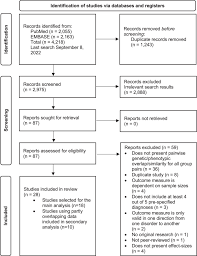Pioneering research has shown that the human brain has an incredible capacity for change and adaptation, a quality known as neuroplasticity. This groundbreaking discovery has the potential to revolutionize our understanding of the brain and how it can be utilized to improve mental health and well-being. In a recent study published in the journal Scientific Reports, researchers have uncovered new insights into the relationship between neuroplasticity and mental health, shedding light on the potential of harnessing this phenomenon to enhance cognitive function and treat a variety of mental health conditions.
Neuroplasticity refers to the brain’s ability to reorganize itself by forming new neural connections in response to learning, experience, or injury. This phenomenon is crucial for our ability to adapt to new situations, learn new information, and recover from brain injuries. In the context of mental health, neuroplasticity plays a vital role in shaping our thoughts, emotions, and behaviors, and can be both a contributing factor to mental health conditions and a powerful tool for their treatment.
The study, conducted by a team of researchers from various institutions, explored the relationship between neuroplasticity and mental health by examining the effects of cognitive training on brain function and mental well-being. The researchers recruited a group of participants with varying levels of cognitive function and divided them into two groups: one group received cognitive training designed to improve neuroplasticity, while the other group did not receive any intervention.
Over the course of several weeks, the researchers measured various markers of neuroplasticity, such as brain-derived neurotrophic factor (BDNF) levels and functional connectivity between brain regions, as well as participants’ mental health outcomes, including symptoms of anxiety and depression. The results of the study revealed that the group that received cognitive training showed significant improvements in both neuroplasticity markers and mental health symptoms compared to the control group.
These findings have important implications for the treatment of mental health conditions, as they suggest that interventions aimed at enhancing neuroplasticity may be an effective way to improve mental well-being. By harnessing the brain’s natural ability to reorganize itself, researchers and clinicians may be able to develop new therapies that target the root causes of mental health disorders and promote lasting improvements in cognitive function and emotional regulation.
In addition to its potential therapeutic benefits, the study also sheds light on the underlying mechanisms of neuroplasticity and how they relate to mental health. By better understanding how cognitive training influences brain function and mental well-being, researchers can identify new targets for intervention and develop more effective treatments for a range of mental health conditions.
Overall, this study represents a significant step forward in our understanding of the relationship between neuroplasticity and mental health. By uncovering the powerful effects of cognitive training on brain function and mental well-being, researchers have opened up new possibilities for the treatment of mental health disorders and the enhancement of cognitive function. As we continue to explore the potential of neuroplasticity, we may unlock new ways to improve mental health and well-being for people around the world.

